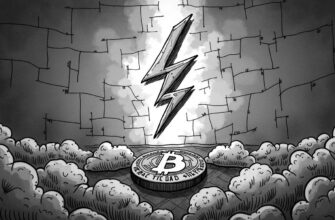- What innovation does PropiChain bring to real estate?
- How do traditional REITs differ from PropiChain’s model?
- Liquid Access
- Transparency and Trust
- Stability vs Speculation
- Generous Returns
- Growth Opportunities
- Access for All
- Are there privacy issues associated with PropiChain’s technology?
- Potential Data Privacy Concerns
- Security Vulnerabilities in the Metaverse
- How will regulatory bodies likely react to this new technology?
- Compliance and Protection
- Smart Contracts and Validity
- Real Estate Tokenization and Securities Law
- Importance of Data Quality
- Collaboration and Skill Development
- What ethical considerations come with owning virtual property?
- Privacy
- Ownership and Rights
- Intellectual Property
- Jurisdiction Issues
- Governance and Control
- Security
- What investment opportunities does PropiChain present?
- Market Potential
- DeFi Integration
What innovation does PropiChain bring to real estate?
PropiChain is a groundbreaking platform that combines artificial intelligence and blockchain technology to change the way we think about real estate investing. By turning tangible properties into digital assets, PropiChain provides a way for people to invest in real estate without the usual difficulties associated with high capital requirements. The company’s approach allows investors to purchase fractional parts of valuable properties, which solves some of the liquidity issues that often plague real estate markets. AI technology plays a key role in this system, automatically assessing property values, predicting market movements, and facilitating transactions, thus streamlining the investment process. The platform’s inclusion of metaverse experiences means users can tour properties in a 3D digital realm, allowing global access.
How do traditional REITs differ from PropiChain’s model?
Liquid Access
Unlike traditional Real Estate Investment Trusts (REITs), PropiChain’s tokenization model allows for greater liquidity. The conversion of physical properties into NFTs enables transactions on a decentralized platform, providing easier access to exit investments. Traditional REITs generally suffer from illiquidity, as non-traded options are hard to sell and publicly traded ones are prone to stock market fluctuations.
Transparency and Trust
PropiChain’s blockchain framework ensures the utmost transparency in transactions, increasing trust among users. While public REITs have their own transparency, they often come at a cost of inefficiency, be it in delayed projects or budget overruns.
Stability vs Speculation
PropiChain may offer a more stable investment opportunity, as its AI component mitigates human error and provides real-time insights, lessening volatility. On the contrary, REITs often see their values fluctuate significantly based on broader market trends.
Generous Returns
PropiChain’s approach could offer lucrative returns for early investors, some even looking at figures like 22,027% returns by 2025, although these are somewhat speculative. REITs don’t offer such wild growth expectations but historically provide more stable returns between 10-12%.
Growth Opportunities
The ability to not be bound by dividend payout requirements means PropiChain can reinvest in its growth. With REITs required to provide most of their income as dividends, this can hinder their ability to expand.
Access for All
Lastly, PropiChain’s fractional ownership model opens avenues for smaller investors to participate in high-end real estate, potentially creating a more diverse investment base. REITs often require larger initial investments making them less accessible.
Are there privacy issues associated with PropiChain’s technology?
Potential Data Privacy Concerns
When you involve AI in real estate, you’re dealing with heaps of sensitive information. Data privacy is a real concern, as there are risks of over-collection of user data, exposing sensitive information, or falling prey to hackers. Also, AI systems can operate like “black boxes”, where what happens inside them is not clear, which could lead to data misuse. Safeguarding against these risks requires diligent data management, robust security measures like encryption, and compliance with laws like GDPR.
Security Vulnerabilities in the Metaverse
Then there’s the metaverse. Buying virtual properties means collecting and processing user data that could be vulnerable to various threats. Additionally, using blockchain in the metaverse can create detailed user profiles, potentially jeopardizing anonymity. Third-party vendors used for authentication can also lead to unauthorized access. Finally, biometric data used in the metaverse poses a significant risk.
How will regulatory bodies likely react to this new technology?
Compliance and Protection
Regulatory bodies must adapt, ensuring existing regulations are met. Compliance will be crucial, especially when it comes to data protection. Co-operation with industry experts can help forge comprehensive protection policies that keep user rights intact.
Smart Contracts and Validity
There are legal implications of smart contracts too. Their validity varies across states and nations, which can lead to disputes. Guidelines need to be made to ensure contract recognition.
Real Estate Tokenization and Securities Law
The SEC will likely scrutinize real estate tokenization closely. Token issuers must assess if their tokens are classified as securities, subject to registration and compliance. Clear guidelines can help.
Importance of Data Quality
Regulatory bodies should also emphasize strong governance to ensure the data used in AI applications is of high quality.
Collaboration and Skill Development
Working with industry experts to address all of these points will be paramount in ensuring the adoption of these technologies runs smoothly. Additionally, training in these new technologies will be vital for ensuring the workforce is equipped with the necessary skills.
What ethical considerations come with owning virtual property?
Privacy
Protecting user privacy is paramount since the metaverse collects sensitive personal data, including biometric data, which if misused can compromise user trust.
Ownership and Rights
One of the biggest ethical quandaries is ownership. Virtual properties are often represented through NFTs. While they prove ownership, the legal status of these rights is still undecided and can be ambiguous.
Intellectual Property
Given the vast amount of virtual content in the metaverse, defining ownership becomes tricky. Who owns what?
Jurisdiction Issues
Jurisdiction adds another layer of complexity, as the metaverse operates across different nations.
Governance and Control
With no central governing authority, who will oversee these activities? This leads to questions about fairness and whether platforms can change or eliminate properties.
Security
As a completely digital space, the metaverse is at risk for hacking and fraud.
What investment opportunities does PropiChain present?
Given the surge in AI investments, PropiChain is at the forefront of this trend. The current token presale raised more than $3 million, illustrating investor interest. Tokens are currently priced at $0.011 each, the lowest price before the next phase raises it to $0.023. With a listing price at $0.032, early investors stand to gain significantly, with a modest $700 investment potentially yielding over $4,900.
Market Potential
Market analysts are excited, predicting a remarkable 3,000% ROI by the end of Q1 as PropiChain takes control of a significant share of the $300 trillion real estate market, making it a serious contender against rivals like TRUMP.
DeFi Integration
PropiChain’s DeFi facet allows investors to use their holdings for loans while retaining ownership. The assets can also be staked for over 225% APYs.
This surge of interest illustrates that now is the time to consider PropiChain as a part of your portfolio.








